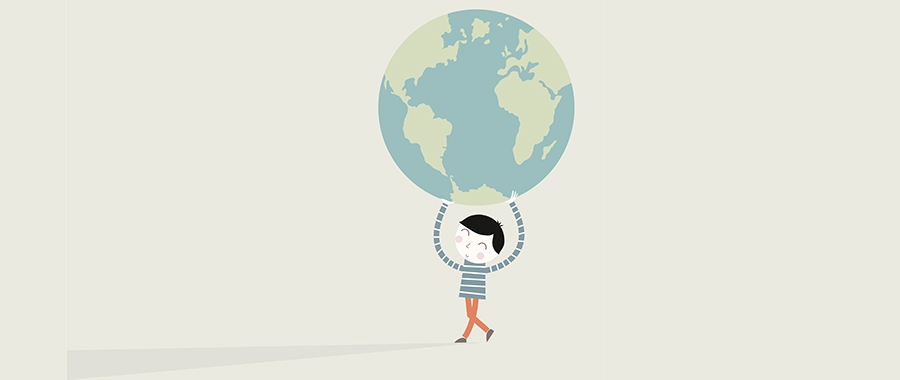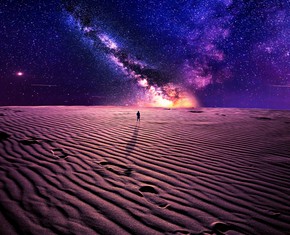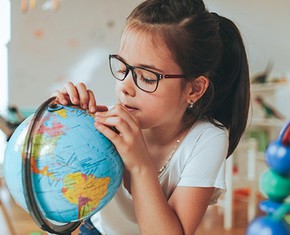The views expressed in our content reflect individual perspectives and do not represent the authoritative views of the Baha'i Faith.
If I asked you to turn to face the south, and then begin walking, and if you kept walking until you finally reached the border of another country, what country would that be?
In my case it would be the vast stretches of Antarctica. Of course, it wouldn’t involve much walking; more like swimming, as I would first need to cross the Pacific Ocean, and finally the icy cold waters of the great Southern Ocean.
Until relatively recently that hasn’t been a very popular place to visit. The first landing on the Antarctic mainland was supposedly by a sealer, who claimed to have set foot there on 7 February 1821. The general opinion was that there were no scientific aspects worth exploration in the far South.
Unfortunately since that time human occupation has had devastating influences; today pollution in Antarctica affects not just a localized area, but the world at large. This is the result of ozone degradation, heightened CO² levels, increased lead concentrations, and most inexcusable of all; tangible human waste and litter. Acting in a manner mere animals would abhor, we are effectively defiling our own collective nest.
The Baha’i teachings remind us that “The earth is but one country and mankind its citizens.” – Baha’u’llah, Gleanings from the Writings of Baha’u’llah, p. 250. The Earth sustains us, so we must return the favor.
When it comes to exploration and invention, the world is no longer a place of “every man to himself,” where explorers, inventors and the like are left to their own devices. Everything each human being does has wider implications. As science enables us to make greater discoveries and to delve further and deeper into the world of creation, we are being called to recognize new concepts and apply new values in order to ensure that our ventures reflect the best interests of our world as a whole.
As we dive deeper into the previously-considered lifeless depths of the icebound Antarctic Ocean–until recently of interest only to a few intrepid explorers—we begin to develop a new appreciation of this vast Southern Ocean, and to recognize the need for new boundaries, for developing new laws, and applying new protections.
Sailors know these latitudes as the “Roaring Forties,” the “Furious Fifties” and “Shrieking Sixties,” which gives you some idea of the challenges they faced. But suddenly people are beginning to look upon this inhospitable region of our planet with new, and often greedy, eyes.
This previously overlooked area is now expected to contain large, possibly even vast, oil and gas fields. Deposits and accumulations of valuable minerals such as gold are also expected to exist, but the methods of their exploration and extraction are often permanently damaging to the previously virgin area. The southernmost part of our planet even provides revenue for tourism.
We now recognize that this formerly unvalued area nurtures high levels of phytoplankton, copepods and krill. The resultant food chains support fish, whales, seals, penguins, albatrosses and a wealth of other species. More than 235 marine organisms live in these polar regions. The simple organism that is Antarctic krill is now recognised as the keystone species of the entire ecosystem of the Southern Ocean, being an important food organism for many marine and avian species.
Greater knowledge has resulted in greater challenges. We are now finding that the increased solar ultraviolet radiation resulting from the Antarctic ozone hole has reduced marine primary productivity (phytoplankton) by as much as 15 percent—and has actually started damaging the DNA of some fish.
The Antarctic has also become an extension of the playgrounds of the wealthy, as major international yacht races take place in the Southern Ocean.
Yet another change is afoot; climate change means that greater attention is now being paid to the icebergs that form each year around in the Southern Ocean, and are claimed to hold enough fresh water to meet the needs of every person on Earth for several months. Plans are already underway to tow icebergs to areas where fresh water is unavailable, raising the question of whether we should tamper with things that have taken many millennia to develop. What could be the consequences, and how widely might those consequences extend? What accountability will there be for such actions? Who owns the icebergs?
Further highlighting the need for international accountability, scientists are now planning to drill into the earth’s mantle and core, to find whether life exists in those unknown regions. Once again the questions must be raised: what damage will this cause? What uses, constructive or destructive, will be made of the knowledge and resources this might uncover? What accountability will these scientists accept?
The great and mighty ocean is powerless to change the ebb and flow of its tides—nothing can stand against nature’s laws but man! – Abdu’l-Baha, Paris Talks, p. 122.
These examples highlight the increasing need for international agreements to protect the world’s resources and oceans. The idea that any one nation owns particular areas of the planet is no longer feasible. What happens in Antarctica happens to you and me. This is humanity’s ozone, these are our whales and fish species, and the Earth’s mantle is our foundation. We now know, without any doubt, that we must work together in unity to protect and preserve our environment. In the next essay, we’ll explore how that might occur.
















Comments
Sign in or create an account
Continue with Googleor